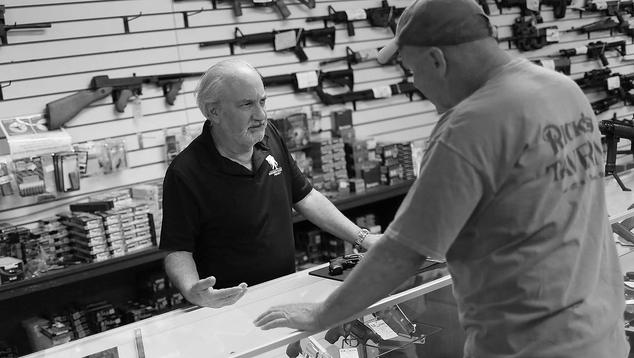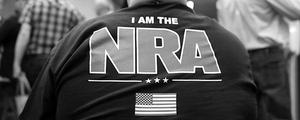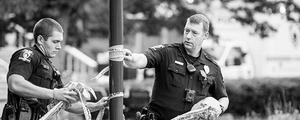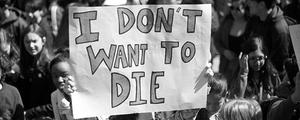Story Highlights
- 28% want current laws to remain the same; 7% want them to be less strict
- Desire for stricter laws much greater among Democrats than Republicans
- National handgun ban remains unpopular: 29% support outright ban
WASHINGTON, D.C. -- Nearly two in three Americans say that laws covering the sale of firearms should be made stricter (64%), while 28% say the laws should be kept as they are. Few Americans (7%) would like the laws to be made less strict.
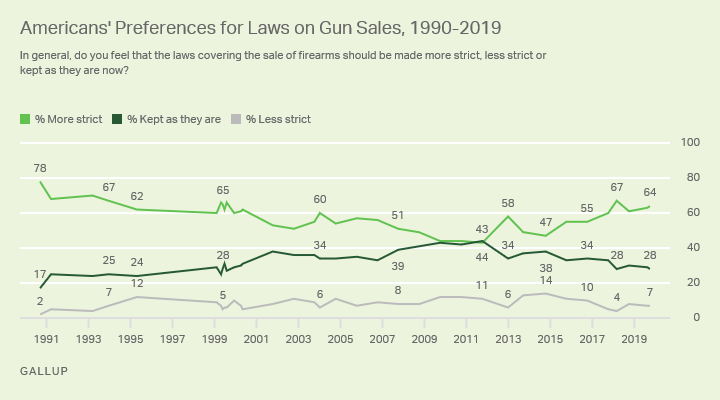
These data are from Gallup's annual Crime poll, conducted Oct. 1-13. Americans' desire for stricter gun laws was greatest in 1991 -- at 78% -- when Gallup first fielded the question, but this view ebbed over the following two decades, bottoming out at 43% in 2011.
There was a spike to 58% in desires for stricter firearm sales laws in 2012, after the shooting at Sandy Hook Elementary School in Newtown, Connecticut, but figures returned to the 47% to 49% range for several years. Since 2015, however, support for stricter laws has registered at the majority level, peaking at 67% in March of last year after the Parkland, Florida, school shooting.
Widened Gap Between Political Parties' Desires for Stricter Gun Laws
U.S. Democrats' desires for stricter laws on firearms sales have increased gradually since 2001 from a solid majority to the point that roughly nine in 10 favor such laws. Over the same period, Republican support has declined from just over 40% to just under that level -- with several dips below 30% during that period, including 23% support in 2013 after the post-Sandy Hook spike of 2012 that occurred across all party groups faded.
The effect of the long-term changes is that Republicans' and Democrats' views on gun laws have grown more polarized, stretching from a 17-percentage-point gap in 2001 to more than 50 points since 2017.
Meanwhile, political independents' views have been somewhere in the middle over the years, with the current 64% the highest Gallup has measured for independents to date.
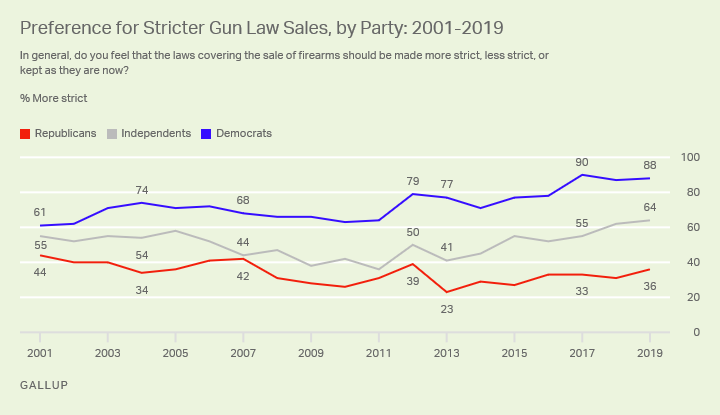
Support for a National Ban on Handguns Remains Low
Gallup also asks Americans whether they would support a ban on the possession of handguns for all people except police. Support for such a law was most popular in 1959, when Gallup first asked the question and 60% favored it. But support waned tremendously in the decades that followed, hitting a low of 23% in 2016.
Support for a national handgun ban has increased slightly since then, with the current 29% on the high end of the 23% to 29% range recorded over the past decade.
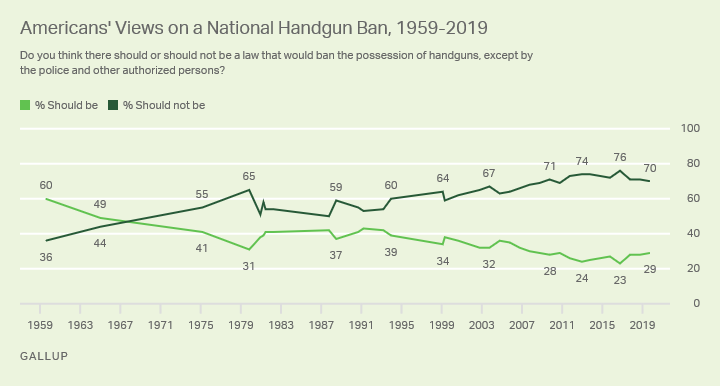
Party Differences on Handgun Ban Have Also Widened
Like their views on stricter firearm laws, Democrats' and Republicans' levels of support for a national handgun ban have also widened -- though not as appreciably -- in comparison with the early 2000s, mainly because Republicans have become even less likely to favor this proposal. The current 34 points separating Democrats' (44%) and Republicans' (10%) support for a ban on handguns is the largest gap recorded between 2000 and 2019.
Though Democrats have been more supportive of such a ban than independents and Republicans, support for a national handgun ban among Democrats has reached majority level only once: in 2004, at 52%.
The current percentage of independents (30%) who support a national ban is the highest it has been since 2005. Meanwhile, Republicans' current 10% matches this group's lowest level of support recorded in the trend so far.
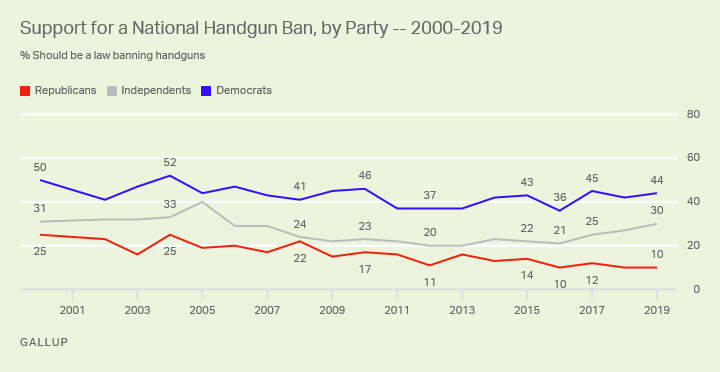
Bottom Line
After a spate of deadly shootings this summer, Trump appeared open to gun reform, but administration officials have recently said that he has backed away from any proposals and will take no action on the issue. Meanwhile, Democratic presidential candidates have aggressively campaigned for gun reform.
The night-and-day positions of Republican and Democratic leaders in Washington on gun legislation reflect the increased differences between the rank-and-file members of their respective political parties. Gallup recently found that Republicans are currently much less worried about falling victim to a mass shooting than are Democrats. And Democrats are about twice as likely as Republicans to assign blame for mass shootings on easy gun access.
The current slate of Democratic presidential candidates unanimously support background checks for gun purchases, which could address a widespread desire for stricter laws on sales -- especially among the Democratic faithful. Still, barring a sudden change of heart by Trump, it appears the only chance that gun laws will be stiffened in the foreseeable future is if a Democrat takes the White House in 2020 and signs legislation that a Democratic-controlled Congress passes.
An outright ban on handguns, however, is not popular and hasn't been for a long time. Though no candidate has proposed such a ban, Americans' widespread opposition to it does show that there are boundaries to the extent of gun restrictions the public wants to see passed.
View complete question responses and trends.
Learn more about how the Gallup Poll Social Series works.
